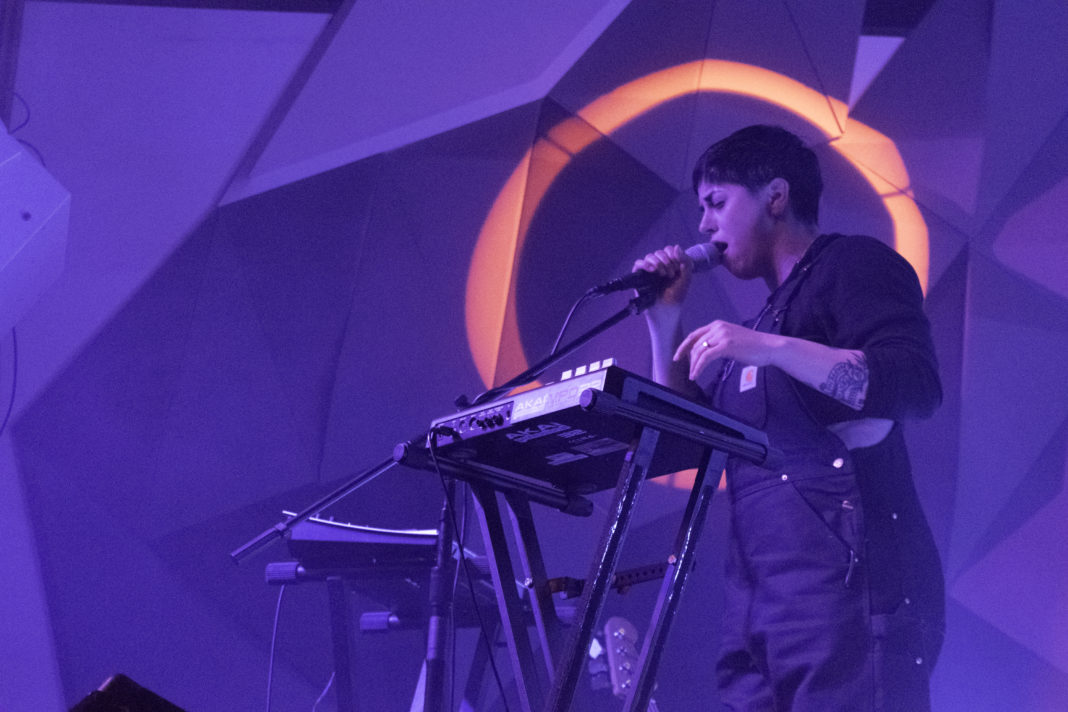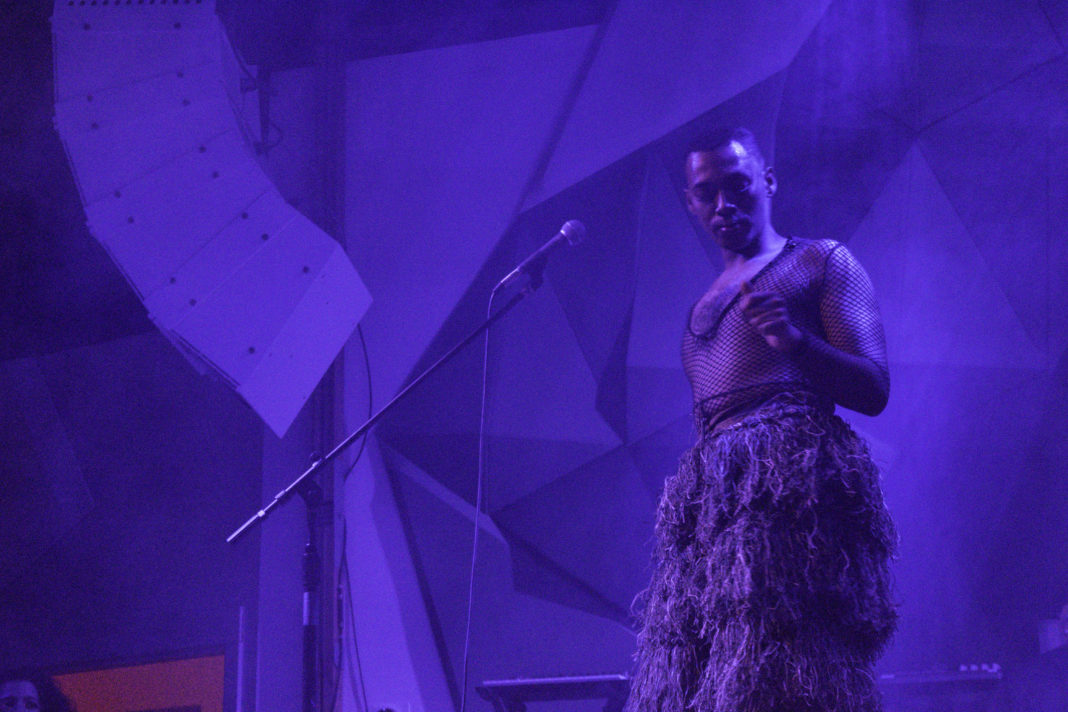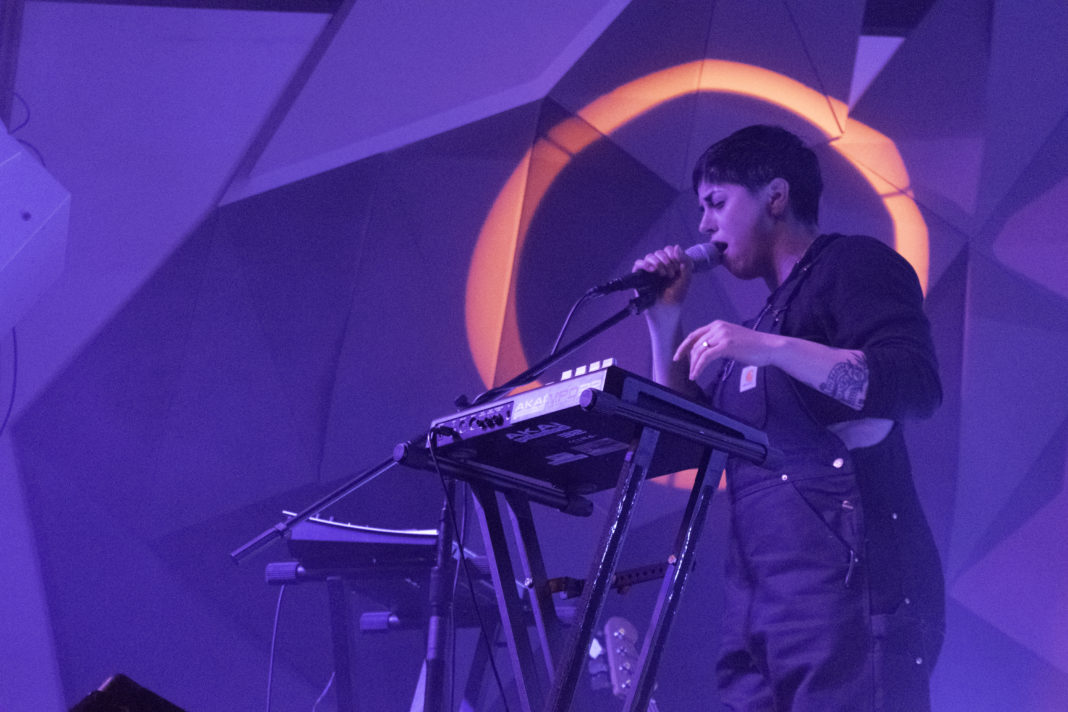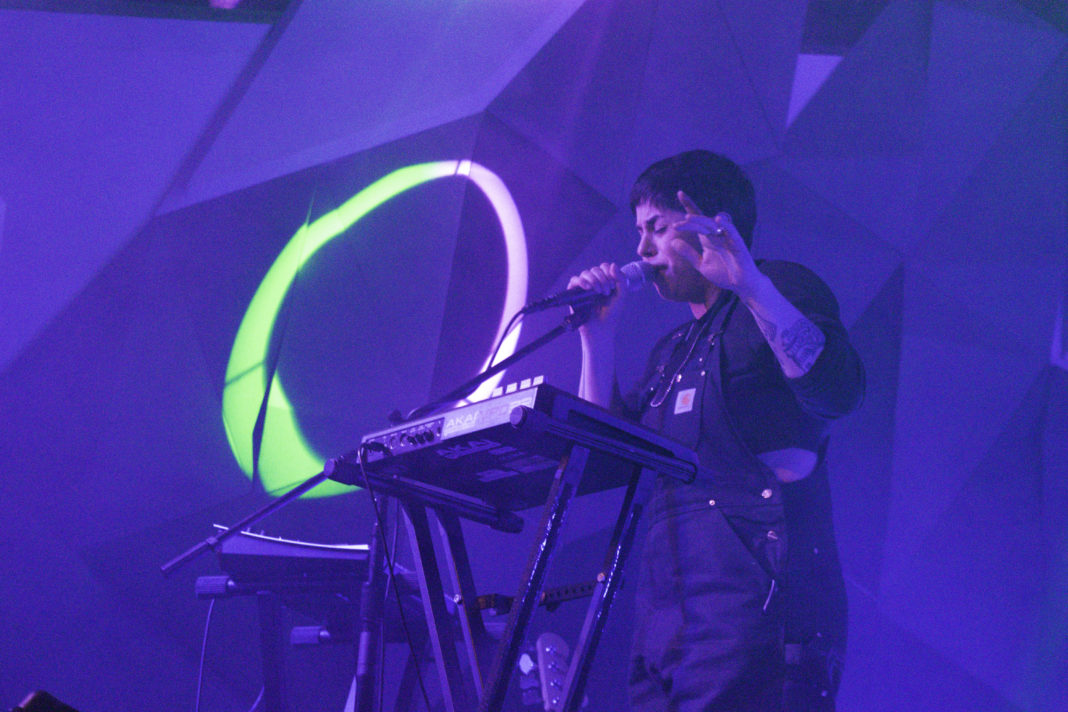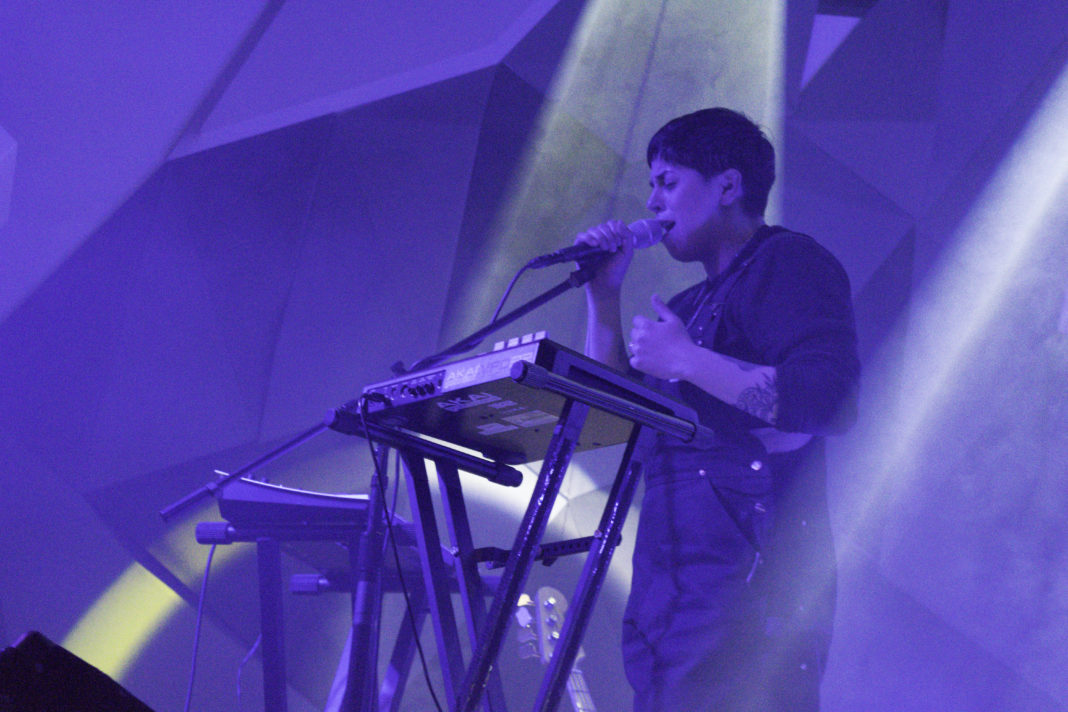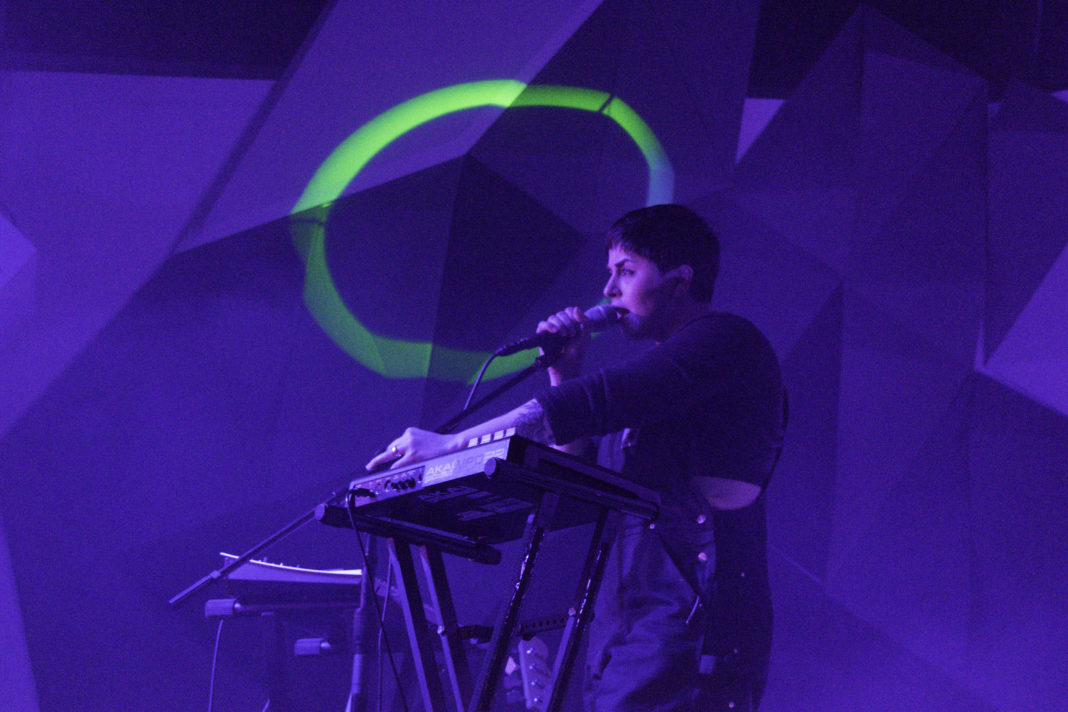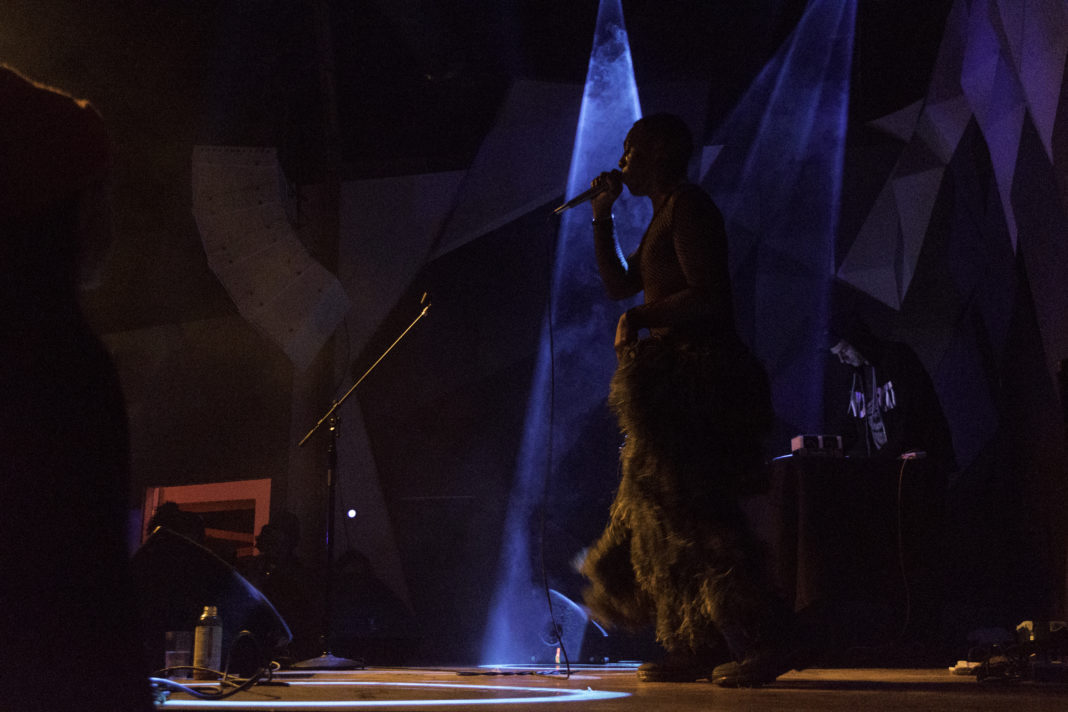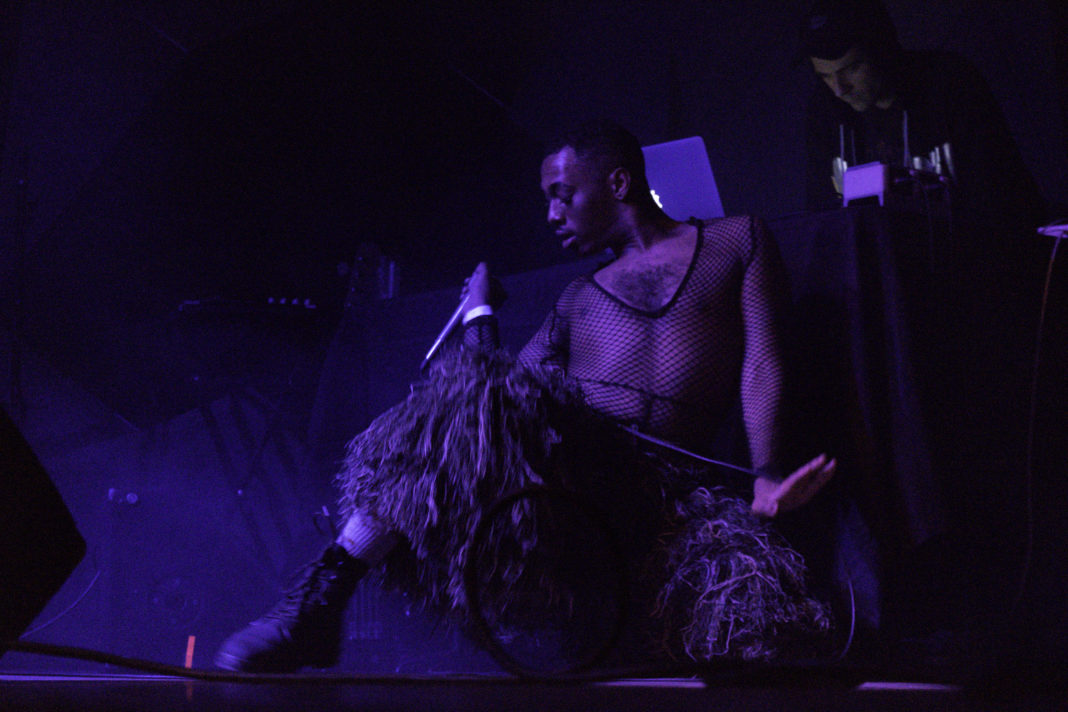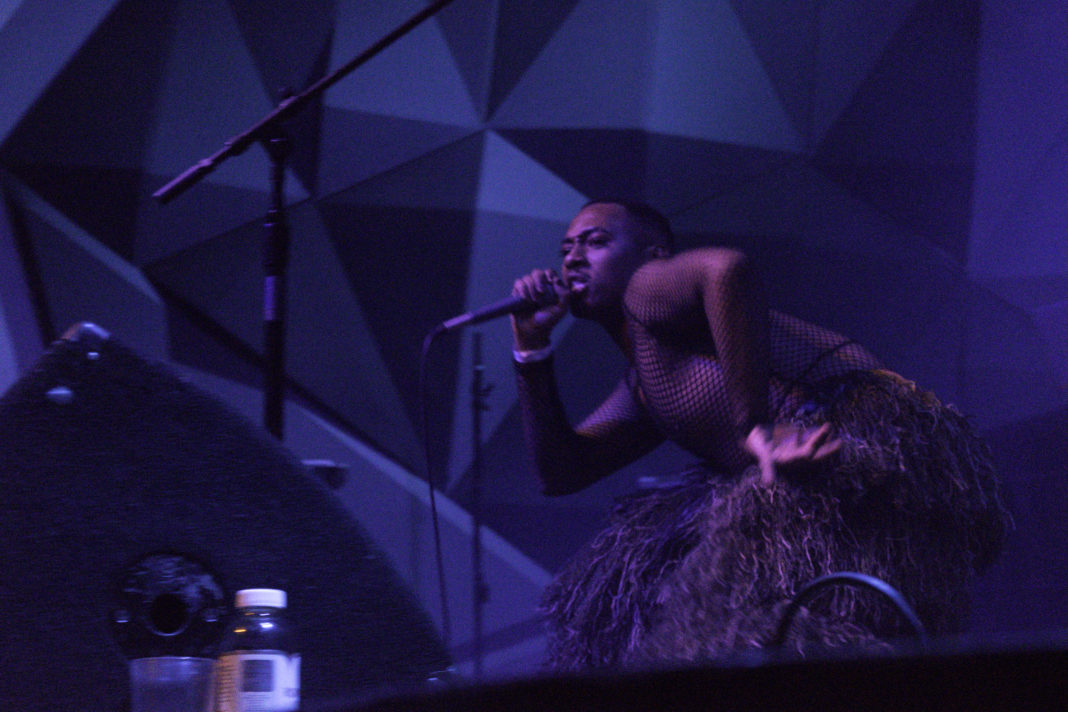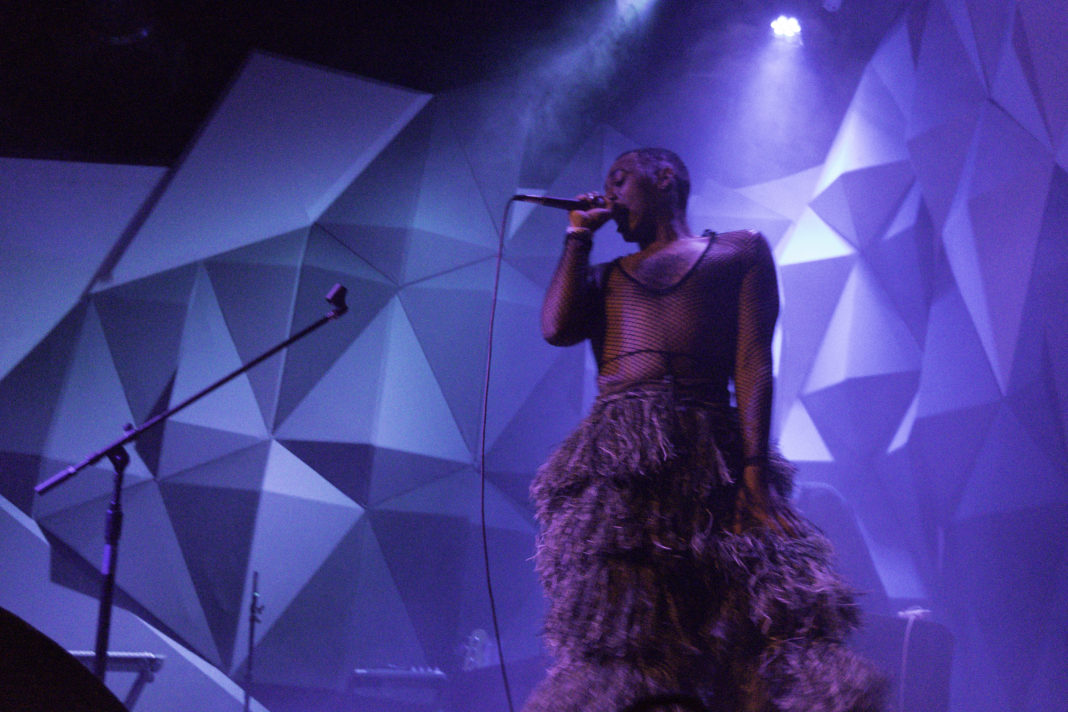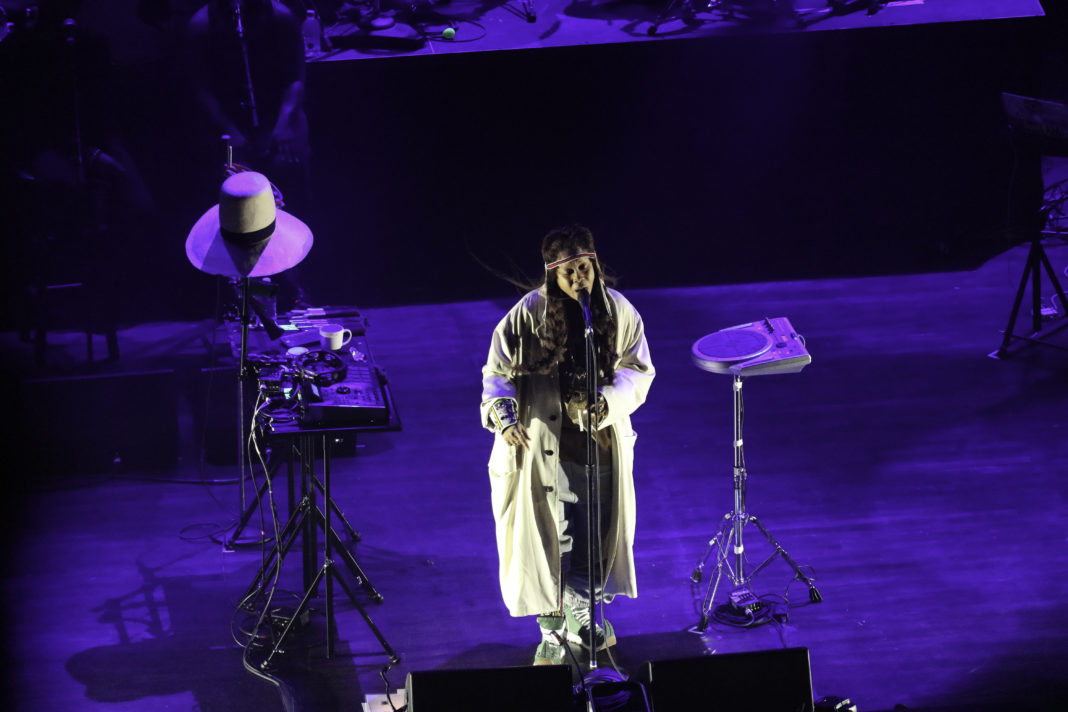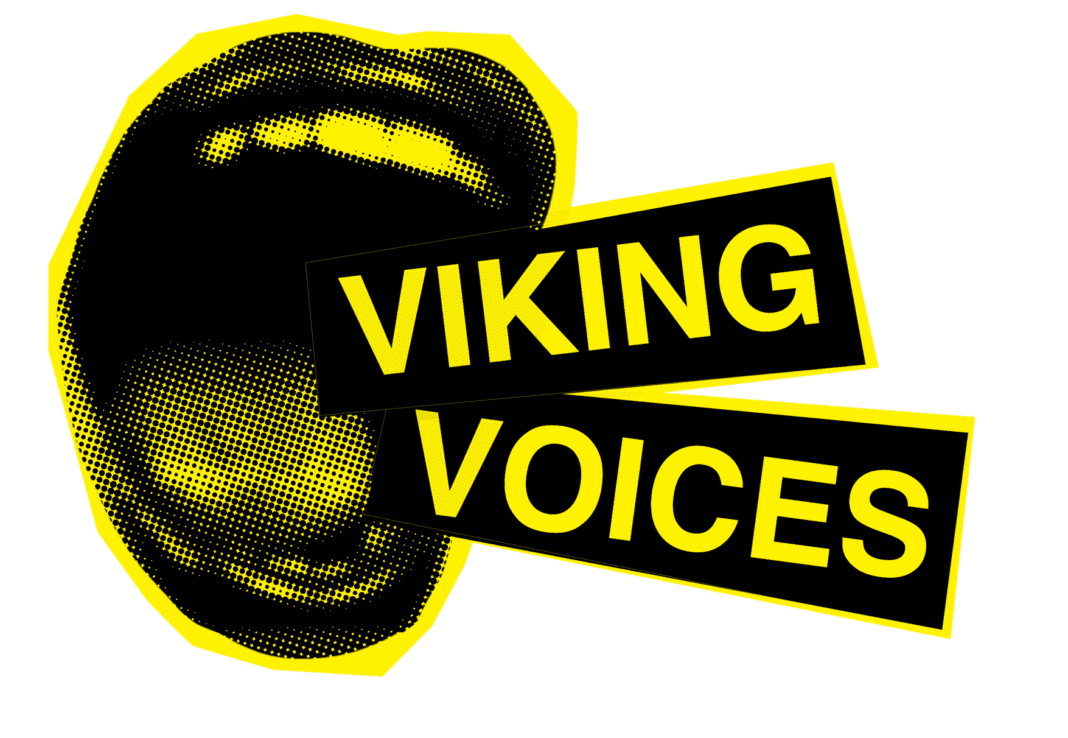Soul’d Out Music Festival seems well on its way to being a Portland tradition. Now in its second year, Soul’d Out attracts national-tier jazz, R&B, funk, and hip-hop music artists to town while using their platforms to elevate local Black and POC artists. Soul’d Out’s organizers are currently challenging Coachella over their allegedly monopolistic contractual practices that kept artists like SZA from coming to Portland, which leads me to believe that if they have the organizational clout and financial backing to take on one of America’s biggest music festivals, they’ll be back next year.
The show and the audience were laid back but ready to party. Maarquii wore a pair of pants that displayed dynamic movement and could have been made from wool or hair; Kmeto wore fitted denim overalls and a black crop top, like a fashionable art student. Maarquii’s vocal and dance flow were sharp, slick and methodical, like Mykki Blanco meets Joanne Prada.
Kmeto’s music sounded like what might happen if Zola Jesus made a funk record: atmospheric, catchy and emotive. Kmeto is the first person in years to make me excited to see someone pick up a guitar. Both artists sang new songs for an adoring hometown audience.
Outside of Chanti Darling, Kmeto performs at national-tier music festivals and toured with TV on the Radio, among other accomplishments. Maarquii was featured in Out Magazine’s online presence, and covered by local press like Willamette Week, Portland Mercury and X-Ray.FM’s blog. Their stars are on the rise. Portlanders should see them in small venues while they can. I question who benefited more from the night’s billing: the artists, or the festival.
Both artists can trace their legacies to underground American artforms pioneered by people of color, like disco and ballroom vogue. As Myles E. Johnson’s essay on the selective use of Big Freedia’s persona in other artists’ work argues, queer artists of color must be seen and heard to have the widest reaching impact on audiences who look, feel and love like that they do. If white audiences, queer or otherwise, want to engage these artforms—based on cultural influencers such as RuPaul’s Drag Race—they/we need to come correct. Femmes to the front, as the riot grrrl saying goes.
The next morning, I realized I attended my proto-typical dream party: sizeable attendance but not paced. There was space to dance, watch and sit; cool music, fashions and people; a bar where nobody is overserved.
My heart was pounding harder than my eardrums. Maarquii and Kmeto sounded like the future of sex, where pleasure isn’t a constructed experience made by meeting attributive requirements. Where pleasure is only one component of the new sexual hierarchy prioritizing mood, connection and the decolonization of coded heteronormativity. Or, as Maarquii said after giving the screaming audience looks, bops and body: “Eat it, Lindsay Lohan.”


